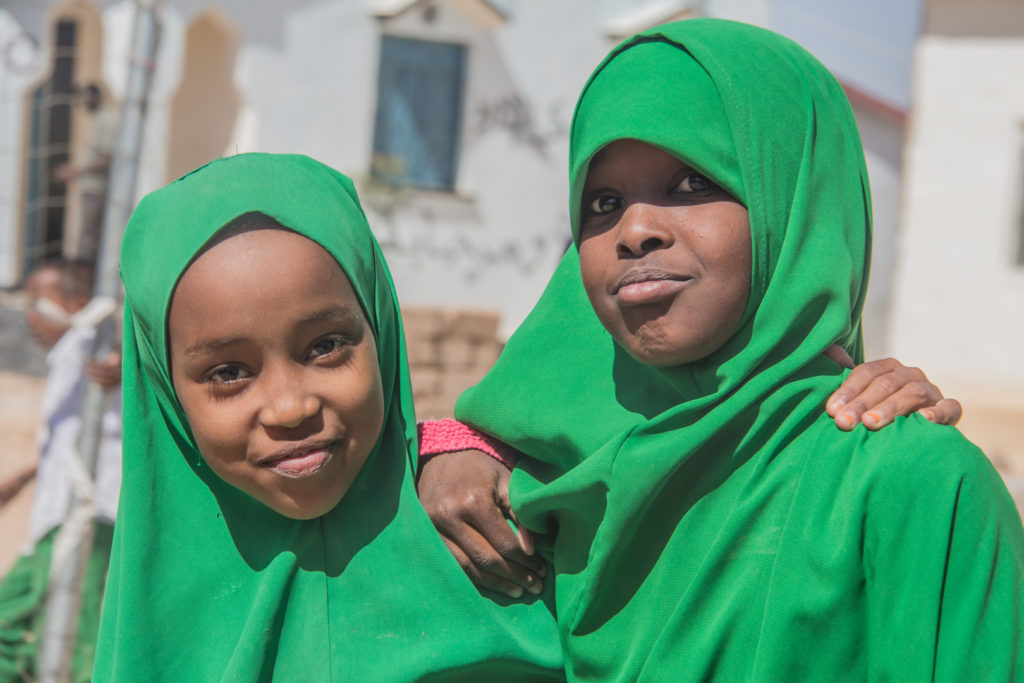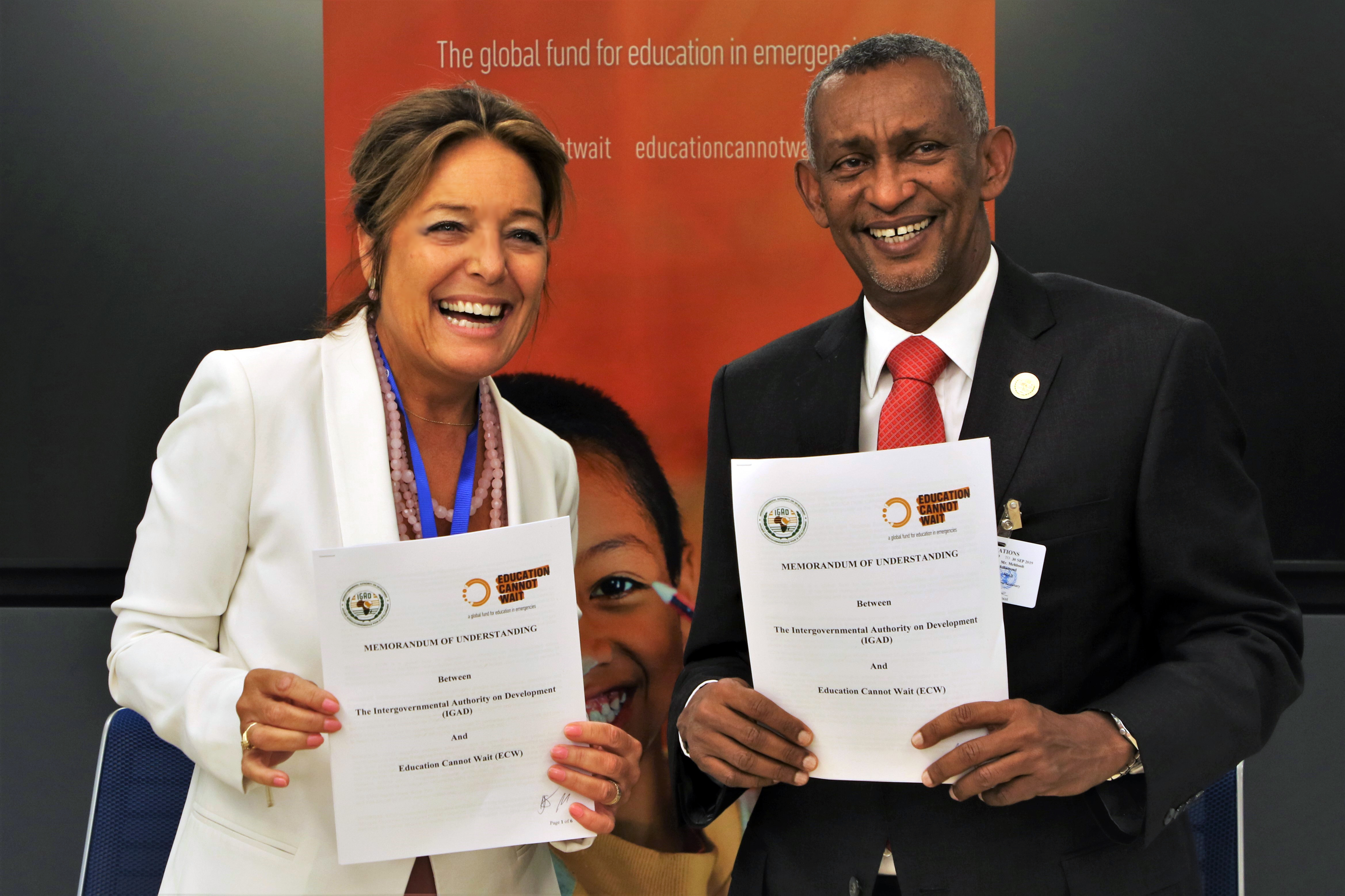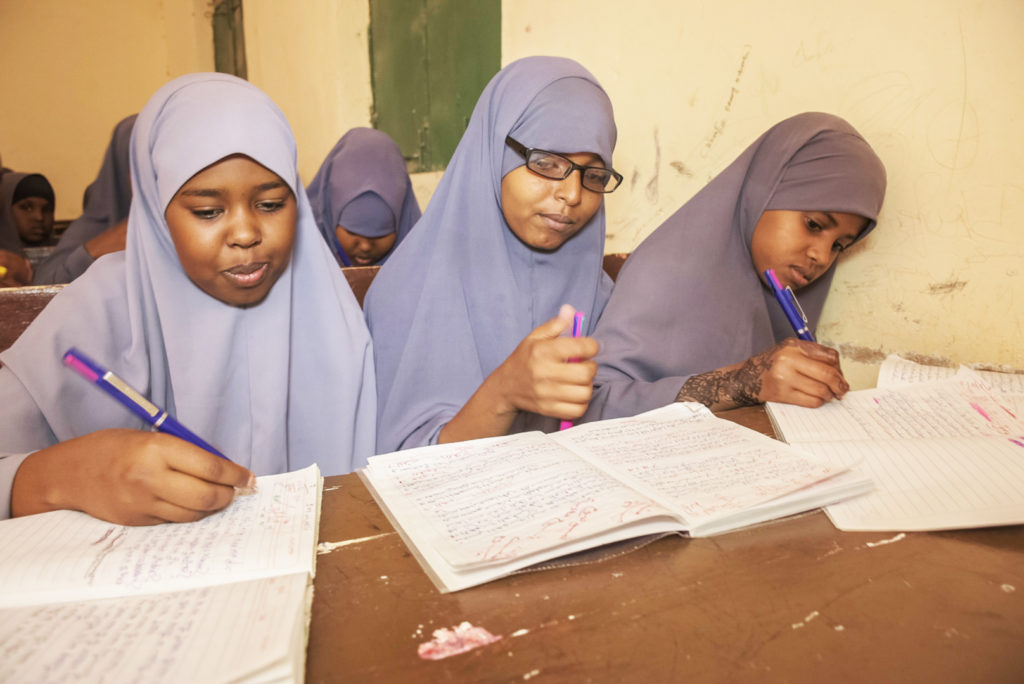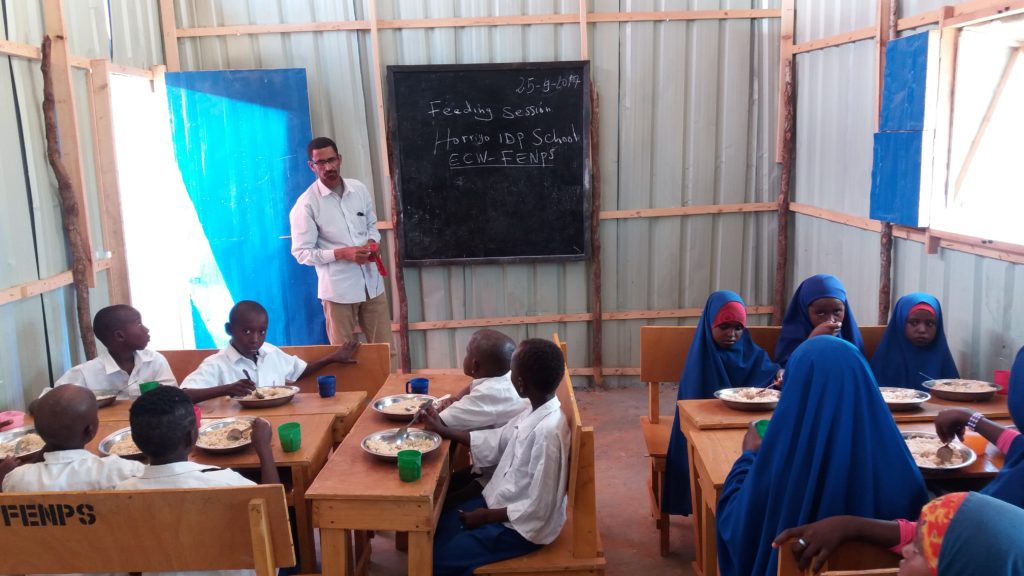Federal Government of Somalia, Education Cannot Wait and Adra Launch Multi-year Programme to Provide Education to More Than 400,000 Children Affected by Crises

Education Cannot Wait allocates $8.5 million in seed funding to launch the $67.5 million three-year programme
The Federal Government of Somalia, Education Cannot Wait and the Adventist and Development Relief Agency in Somalia (ADRA Somalia) launched today a multi-year programme to boost education opportunities for children and youth impacted by ongoing crises in Somalia.
Education Cannot Wait is allocating $8.5 million in seed funding to support the launch of the comprehensive multi-year education response. With this catalytic grant, the global fund for education in emergencies and protracted crises is calling on additional donors to step up and fill the additional $58.8 million required to reach over 400,000 Somali children and youth annually over the next three years.
The ground-breaking programme will improve access to safe, quality education for children and youth affected by the multiple crises in Somalia. Activities will include: school rehabilitation to provide adequate safe learning space, supply of teacher learning material, promotion of girls’ enrolment and retention, support to community education committees to promote education delivery and the importance of protection and safeguarding, and strengthening policy development on education.
ALL school-age children must enjoy their right to education.
“The Government of Somalia is committed to provide an equitable and inclusive education system that affords children left behind with access to free quality basic education. This will enhance their personal development and in the medium to long term contribute to Somalia’s development, socio-economic growth and global competitiveness,” said the Federal Minister of Education, Culture and Higher Education Honourable Abdullahi Godah.
Access to education in Somalia remains extremely limited. The national primary net attendance ratio is estimated at 30 per cent for boys and 21 per cent for girls. The Southern and Central parts of Somalia are the most affected with more than 3 million children out of school. Only 17 per cent of children living in rural areas or in Internally Displaced Persons (IDP) settlements are enrolled in primary schools. Drought, food insecurity, poverty and inequality also hinder efforts to get more Somali children and youth in school, with an estimated 2.4 million school-aged children considered food insecure.
The Education Cannot Wait-supported programme in Somalia will contribute to achieving improved learning outcomes for school-aged children who are affected by emergencies through increased access to quality, inclusive, gender-sensitive, child-friendly and sustainable education.
“This multi-year resilience programme supports the efforts of the Federal Government of Somalia and Member States to ensure that every girl and boy in Somalia accesses quality education in the midst of hardship. It is an opportunity for an entire generation to rise from crises,” said Yasmine Sherif, Director of Education Cannot Wait. “For too long they have suffered protracted crisis and dispossession. Time has come for them to enjoy their right to develop and grow through an adequate education in a protective learning environment. They deserve no less.”
Education is a central pillar of the Federal Government of Somalia’s plans for long-term stability and socio-economic growth. The long-term development rests on the provision of good quality education services and training. The government recognizes that the economic growth of the country correlates with proportion of people with access to education.
“Investing in education is one of the best ways a country can lift people out of poverty, increase national economic growth and reduce the risk of conflict,” said Luiz Camargo, ADRA’s Country Director in Somalia. “Quality education in emergencies strengthens children’s resilience amidst adversity and supports their socio-emotional and cognitive development.”
The programme interventions were designed in partnership with a broad group of partners from the government, civil society, United Nations (UN) agencies and donors to ensure greater predictability, sustainability and continuity in responding to the needs of education for various age groups in Somalia.
The programme builds on Education Cannot Wait’s First Emergency Response in 2017 funding of $5 million to Somalia to support partners in responding to the severe droughts. Interventions supported critical, supplemental educational services that support schools’ access and retention.
Education Cannot Wait is a global fund for education in emergencies and protracted crises. Working with a wide range of partners – governments, UN agencies, private sector and philanthropic foundations and civil society – the Fund seeks to mobilize US$1.8 billion by 2021 to reach close to 9 million children living in crisis-affected countries around the world.
Notes to the Editors
Learn More
- Programme Document Multi-Year Resilience Programme Federal Government of Somalia and Member States
- Meet the children who benefited from ECW’s First Emergency Response
- View Official Press Release
About Education Cannot Wait (ECW):
ECW is the first global fund dedicated to education in emergencies. It was launched by international humanitarian and development aid actors, along with public and private donors, to address the urgent education needs of 75 million children and youth in conflict and crisis settings. ECW’s investment modalities are designed to usher in a more collaborative approach among actors on the ground, ensuring relief and development organizations join forces to achieve education outcomes. Education Cannot Wait is hosted by UNICEF. The Fund is administered under UNICEF’s financial, human resources and administrative rules and regulations, while operations are run by the Fund’s own independent governance structure.
Additional information is available at www.educationcannotwait.org
About ADRA
ADRA delivers relief and development assistance to individuals in more than 130 countries-regardless of their ethnicity, political affiliation, gender or religious association. By partnering with local communities, organizations, and governments, we are able to deliver culturally relevant programmes and build local capability for sustainable change.
ADRA has been operating in Somali since 1992 implementing emergency relief and development interventions in Education; Livelihood and Economic Development; Renewable Energy; and Water and Health. ADRA’s work in Somali is anchored on a programming approach that recognizes the essence of the communities taking leadership in their own development.
For Press Inquiries:
Anouk Desgroseilliers:
adesgroseilliers@un-ecw.org
+1-917-640-6820
Kent Page:
kpage@unicef.org
+1-917-302-1735



